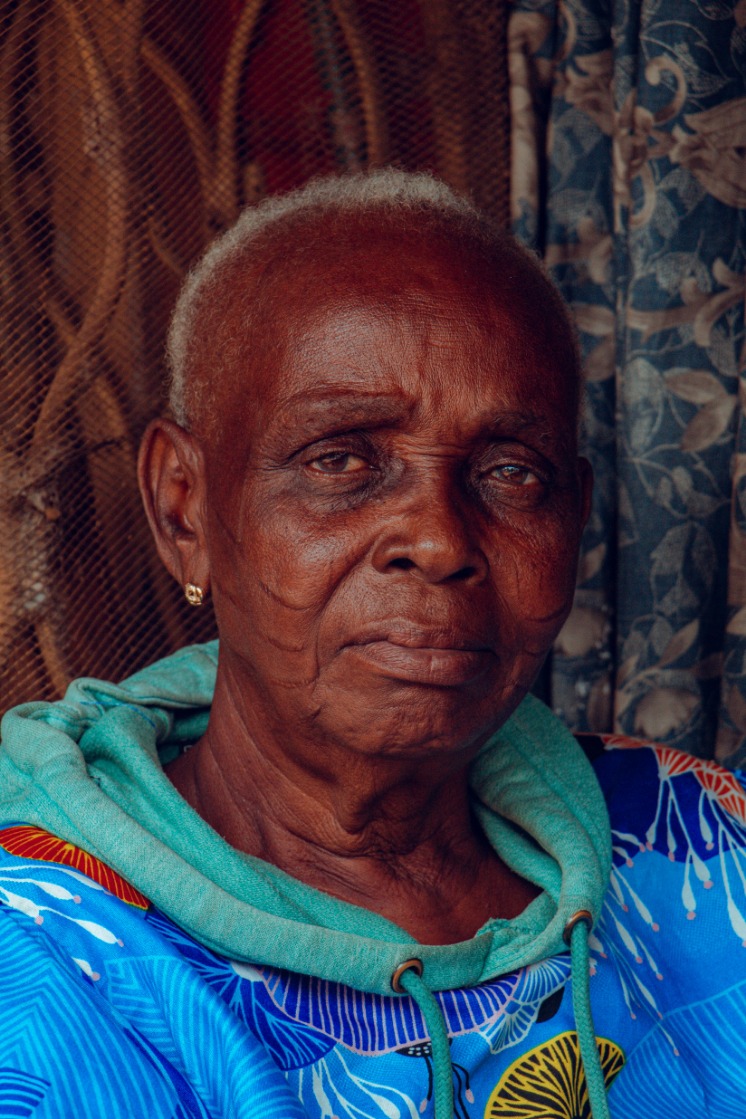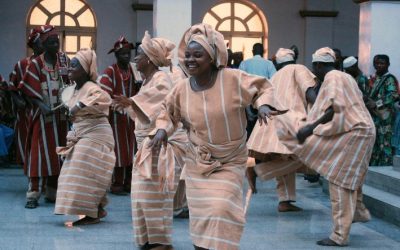Geography and Location of Calabar
Calabar is a vibrant city located in the southeastern region of Nigeria, serving as the capital of Cross River State. It is renowned for its strategic geographical position along the Atlantic Ocean, which enhances its importance as a port city. Situated near the border with Cameroon, Calabar occupies a coastal area characterized by lush rainforests and a tropical climate. Its central location within Nigeria makes it a key hub for cultural, economic, and tourism activities in the region.
Physical Features and Landscape
Calabar is a vibrant city located in the southeastern region of Nigeria, serving as the capital of Cross River State. It is situated along the Atlantic Ocean, providing it with a strategic coastal position that enhances its significance as a port city. The city lies near the southern part of Nigeria, close to the border with Cameroon, making it an important gateway between Nigeria and Central Africa.
Calabar’s physical features and landscape are characterized by a mixture of coastal plains, riverine systems, and lush tropical forests. The city is bordered by the Calabar River, which flows into the Atlantic Ocean, playing a crucial role in the area’s geography and economy. The terrain is relatively flat, making it suitable for urban development and agricultural activities. The surrounding landscape is rich in greenery, with dense mangrove swamps and rainforests that support diverse flora and fauna. The climate in Calabar is humid and tropical, with substantial rainfall supporting the lush landscape and contributing to the region’s fertile soils.
Geographical Coordinates and Boundaries
Calabar is a prominent city located in the southeastern region of Nigeria, serving as the capital of Cross River State. It is renowned for its strategic geographical position along the Atlantic coast, which enhances its significance as a port and commercial hub. The city is situated near the Cross River estuary, providing it with a picturesque waterfront scenery. Calabar’s geographical coordinates are approximately 4.9700° North latitude and 8.3333° East longitude. It shares its boundaries with several local government areas including Akpabuyo, Odukpani, and the Atlantic Ocean to the south. The city’s location contributes to its diverse cultural heritage and economic activities, making it an important regional center in Nigeria.
Historical Background of Calabar
Calabar, located in southeastern Nigeria, boasts a rich historical background that dates back centuries. It was originally inhabited by the Efik people, known for their vibrant culture and trade connections. During the colonial period, Calabar became a prominent port and center for commerce, playing a significant role in the transatlantic slave trade. Its strategic location and diverse cultural influences have shaped it into a unique and historically important city in Nigeria today.
Pre-Colonial Era and Indigenous Peoples
Calabar, located in southeastern Nigeria, boasts a rich historical background that dates back centuries. It was originally inhabited by indigenous ethnic groups, primarily the Efik people, who have played a central role in shaping the region’s cultural and social landscape. Before colonial rule, Calabar was a thriving hub of trade and diplomacy, known for its vibrant markets and complex social structures.
During the pre-colonial era, the Efik and neighboring peoples established organized chiefdoms and trading communities along the Cross River. They engaged in widespread commerce with European traders, particularly in palm oil, ivory, and slaves, which significantly impacted the region’s development. The society was characterized by distinct traditional institutions, elaborate rituals, and a strong sense of community identity. These indigenous peoples maintained a high degree of political autonomy and cultural sovereignty until European influences began to reshape their societies in the 19th century.
Colonial Period and European Influence
Calabar, located in southeastern Nigeria, boasts a rich historical background marked by its prominence as a major trading hub and cultural center. Its strategic geographic position along the Cross River facilitated trade, diplomacy, and interactions with various coastal communities long before colonial contact.
During the colonial period, Calabar became a significant focal point for European powers, particularly the British. In the late 19th century, the area was incorporated into the British protectorate of Nigeria, and Calabar emerged as an important administrative and commercial center. The colonial administration established infrastructure such as roads, schools, and government buildings, which contributed to the town’s development.
European influence deeply shaped Calabar’s history, culture, and economy. The British introduced Christianity, Western education, and new administrative systems. The port of Calabar became a key route for the trans-Atlantic trade, including the unfortunate trade in enslaved persons, which had a profound impact on local societies. European missionaries and traders left lasting legacies that are still evident in Calabar’s cultural landscape today.
- Trade and Diplomacy: Calabar’s natural port made it a central trading hub for palm oil, cocoa, and other goods.
- Colonial Administration: The British established Calabar as an administrative capital, developing infrastructure and governance systems.
- Impact of Christianity: European missionaries introduced Christianity, influencing local religious practices and education.
- Architectural Legacy: European-style buildings and colonial architecture remain prominent in Calabar’s historic district.
- Cultural Exchange: Interaction with Europeans led to the blending of local customs with external influences, shaping Calabar’s diverse culture.
Post-Independence Developments
Calabar, located in southeastern Nigeria, has a rich historical background that dates back to the pre-colonial era when it was a prominent center for trade and commerce among various indigenous groups. Its strategic coastal position facilitated interactions with European traders, particularly during the 17th and 18th centuries, which led to the establishment of Calabar as a major port and slave trade hub. The city’s diverse cultural heritage is reflected in its historical sites and traditional practices that have persisted over centuries.
Following Nigeria’s independence in 1960, Calabar experienced significant developments aimed at fostering economic growth and modern infrastructure. The post-independence period saw the establishment of educational institutions, healthcare facilities, and government infrastructure that contributed to the city’s urbanization. Calabar also became a focus for tourism, leveraging its historical sites, cultural festivals, and natural attractions such as the Qua River and the nearby Cross River National Park.
In recent decades, Calabar has emerged as a center for tourism and culture in Nigeria, famously hosting the annual Calabar Carnival, which attracts visitors from around the world. The city has also seen improvements in transport connectivity, including upgraded roads and ports, facilitating trade and movement. Efforts to preserve its historical sites and promote cultural heritage continue to play a vital role in Calabar’s post-independence development trajectory.
Economic Activities in Calabar
Calabar, Nigeria, is a vibrant city renowned for its diverse economic activities that drive local development. The city benefits from its strategic location along the coast, making it a key hub for trade, commerce, and tourism. Its economy is bolstered by industries such as agriculture, manufacturing, and port-related services, which collectively contribute to the growth and prosperity of the region.
Commerce and Trade
Calabar, Nigeria, is a vibrant hub of economic activities, with commerce and trade playing a crucial role in its development. The city has historically been a significant trading center due to its strategic location along the coast and its access to both inland and maritime routes. Local markets in Calabar are bustling with the exchange of various goods, including agricultural produce, crafts, textiles, and imported commodities.
Trade in Calabar is facilitated by its busy seaport, which serves as a gateway for goods coming into and leaving Nigeria. This port supports both import and export activities, contributing substantially to the local economy. Additionally, the city has a strong presence of traders involved in the sale of palm products, seafood, and crafted artifacts, which are also exported to international markets.
The commercial sector in Calabar is complemented by a growing tourism industry, which encourages the trade of local crafts and cultural artifacts. Markets such as the Calabar Main Market are central to commercial activities, providing opportunities for small-scale traders and entrepreneurs. Overall, Calabar’s commerce and trade are vital drivers of its economic growth, fostering employment and development within the region.
Tourism Industry
Calabar, Nigeria, is renowned for its vibrant economic activities, largely driven by its strategic location and diverse industries. The city boasts a bustling port that facilitates the import and export of goods, making trade a vital component of its economy. Agriculture also plays a significant role, with cocoa, palm oil, and yams being major products. Additionally, Calabar has seen growth in manufacturing and small-scale industries, contributing to employment and economic development.
The tourism industry in Calabar is a key pillar of its economy, attracting visitors from across Nigeria and beyond. The city is famous for its rich history, cultural festivals, and natural attractions. Events like the Calabar Carnival, often dubbed Africa’s biggest street party, draw thousands of visitors annually. Tourists also enjoy exploring the Slave History Museum, the Calabar Museum, and the well-preserved Ikang Old Town. The presence of beautiful beaches, waterfalls, and wildlife sanctuaries further enhances Calabar’s appeal as a top tourist destination. This thriving tourism sector not only boosts local businesses but also promotes cultural exchange and international recognition of Calabar as a vibrant tourism hub.
Agriculture and Local Industries
Calabar, Nigeria, is a vibrant city with diverse economic activities that contribute significantly to its development. Agriculture plays a crucial role in the local economy, with many residents engaged in farming activities such as crop cultivation and livestock rearing. The fertile land and favorable climate support the production of crops like cassava, yams, plantains, and vegetables, which are vital for both local consumption and trade.
In addition to agriculture, Calabar has various local industries that bolster its economy. These industries include food processing, textile manufacturing, and crafts such as bead-making and woodwork. The city is also known for its thriving tourism industry, with attractions like the ancient slave trade sites, the beautiful beaches, and the Cross River National Park drawing visitors from around the world. Overall, Calabar’s economic activities are diverse and continually evolving, fostering growth and development in the region.
Tourist Attractions and Cultural Heritage
Calabar, Nigeria, is a vibrant city renowned for its rich cultural heritage and diverse tourist attractions. Its historic sites, colorful festivals, and natural beauty make it a popular destination for travelers seeking to explore Nigerian history and culture. From ancient landmarks to lively markets, Calabar offers a unique blend of tradition and modernity that captivates visitors from around the world.
Obong University and Cultural Events
Calabar, Nigeria, is renowned for its rich cultural heritage, vibrant tourist attractions, and esteemed educational institutions like Obong University. Visitors to Calabar can immerse themselves in its unique history and lively cultural scene, making it a prime destination for travelers seeking both education and entertainment.
Tourist attractions in Calabar include the Obudu Mountain Resort, Cross River National Park, and the Calabar Museum, each showcasing the region’s natural beauty and historical significance. The city is also famous for its annual Calabar Carnival, which attracts thousands of visitors from around the world, celebrating Nigerian culture with colorful costumes, music, and dance.

Obong University plays a vital role in the educational landscape of Calabar, offering diverse academic programs and fostering research and development within the region. Its presence enhances the city’s reputation as a center for learning and innovation.
Cultural events in Calabar are lively and diverse, reflecting the rich traditions of the Efik people and other ethnic groups. The Calabar Carnival, traditional festivals, and cultural dances are integral to life in the city, providing both locals and visitors an opportunity to celebrate and preserve Nigeria’s cultural heritage.
- Obudu Mountain Resort for eco-tourism and adventure activities
- Calabar Museum to explore regional history
- Annual Calabar Carnival showcasing Nigerian music, dance, and costumes
- Traditional Efik festivals such as the New Yam Festival
- Cross River National Park for biodiversity and wildlife viewing
Calabar Museum and Historical Sites
Calabar, Nigeria, is renowned for its rich cultural heritage and historical significance, attracting visitors from around the world who wish to explore its vibrant history and unique attractions.
- Calabar Museum: Established in 1972, the Calabar Museum is housed in a historic building that was once the official residence of the British colonial administrators. The museum exhibits a diverse collection of artifacts, artwork, and historical documents that narrate the story of Calabar’s past, including its involvement in the transatlantic slave trade, traditional festivals, and indigenous cultures.
- Historical Sites: Calabar boasts numerous historical sites such as the Slave History Museum, which provides insight into the region’s dark past of slavery and colonialism. Additionally, the Ekpe Society Shrine, Opukong Meme Museum, and the Fort Galerie are significant landmarks that showcase the rich cultural and historical fabric of the city.
- Natural and Cultural Attractions: The city is also famous for its vibrant festivals like the Calabar Carnival, and natural attractions including the Tinapa Resort and the Calabar River, which offer a blend of cultural experiences and scenic beauty.
- Conclusion: Visiting Calabar offers an enriching experience through its well-preserved museums and historical sites that reflect Nigeria’s diverse heritage, making it a must-visit destination for history enthusiasts and culture seekers alike.
Obudu Mountain Resort
Obudu Mountain Resort, located near Calabar in Nigeria, is a renowned tourist destination known for its breathtaking landscapes and rich cultural heritage. Nestled on the eastern slopes of the Obudu Plateau, the resort offers visitors a tranquil escape with stunning views of verdant mountains and lush vegetation. It is famous for its cable car rides, exotic wildlife, and various outdoor activities such as hiking, mountain biking, and bird watching.
Beyond its natural beauty, Obudu Mountain Resort celebrates Nigerian culture through traditional dances, local cuisine, and festivals that showcase the vibrant heritage of the region. Visitors can explore the nearby indigenous communities to gain insights into their customs, history, and way of life. The resort serves as a perfect fusion of natural splendor and cultural authenticity, making it a must-visit attraction in Calabar.
Festival of Arts and Culture (Calabar Carnival)
Calabar, Nigeria, is renowned for its vibrant tourist attractions and rich cultural heritage that attract visitors from around the world. The city boasts historical sites such as the Slave History Museum and the Calabar Museum, which offer insight into its colonial past and cultural significance. Additionally, the lush Oban Hills and Qua Falls provide natural beauty and adventure opportunities for nature lovers.
One of the most prominent cultural celebrations in Calabar is the Festival of Arts and Culture, popularly known as the Calabar Carnival. Held annually in December, this lively event showcases colorful street parades, elaborate costumes, traditional music, dance performances, and cultural displays that celebrate Nigeria’s diverse heritage. The Calabar Carnival is often referred to as Africa’s biggest street party and has become a major tourist attraction, boosting the local economy and fostering cultural pride.
Transport and Infrastructure
Calabar, Nigeria, is a vibrant city known for its rich history and cultural diversity, and its transport and infrastructure systems play a crucial role in connecting it to the rest of the country. The city boasts a developing network of roads, ports, and public transportation options that facilitate the movement of people and goods. Continuous investments in infrastructure are essential to support Calabar’s growth, tourism industry, and economic development, making it a key hub in the southeastern region of Nigeria.
Road Networks and Transportation
Calabar, Nigeria, boasts a developing transport and infrastructure system that plays a vital role in its economic growth and accessibility. The city’s road network is expanding, with major highways connecting Calabar to other key regions in Nigeria, facilitating the movement of goods and people efficiently. Efforts have been made to improve road quality and expand rural connectivity, reducing travel time and enhancing trade opportunities.
Transportation within Calabar includes a combination of road-based transport services such as taxis, buses, and motorcycle riders, which serve both local and regional travel needs. The city also benefits from the Calabar Port, one of Nigeria’s deepwater ports, supporting freight logistics and international trade.
Improvement projects continue to focus on upgrading transportation infrastructure to support tourism and economic activities. The development of bus terminals and roads leading to tourist attractions has helped improve access and promote Calabar’s status as a regional hub. Overall, Calabar’s transport and infrastructure development is instrumental in fostering sustainable growth and connectivity within Nigeria and beyond.
Harbors and Ports
Calabar, Nigeria, possesses a strategic location with well-developed transport and infrastructure facilities, including its harbor and port facilities. The Calabar Port serves as a key gateway for maritime trade in the southeastern region of Nigeria, offering cargo handling services for both domestic and international shipments. The port’s modern infrastructure supports the export of commodities such as timber, oil, and agricultural products, facilitating economic growth in the area.
The city’s transportation network includes roads, railways, and air transportation that connect Calabar to other major Nigerian cities and neighboring countries. The Calabar-Uyo Expressway provides vital road connectivity, enhancing ease of movement for goods and travelers. Although plans for expanding the railway network are ongoing, current rail services help in freight movement and local transit.
Efforts to upgrade and maintain Calabar’s transport infrastructure aim to boost economic development and improve logistical efficiency. The port projects and transportation improvements contribute significantly to Calabar’s role as a regional commercial hub, supporting Nigeria’s broader trade and infrastructural development goals.
Airports and Connectivity
Calabar, Nigeria, boasts a well-developed transportation and infrastructure network that plays a crucial role in its economic growth and regional connectivity. The city is served by the Margaret Ekpo International Airport, which offers domestic flights connecting Calabar to major Nigerian cities such as Lagos and Abuja, facilitating reliable air travel for residents and visitors alike. In addition to air transport, Calabar benefits from an extensive road network that links it to neighboring states, promoting smooth movement of goods and people across the region. The city’s port facilities also support maritime trade, contributing significantly to the local economy. Moreover, ongoing infrastructure development projects aim to enhance connectivity further, including improvements to roads, bridges, and public transportation services, which are vital for supporting tourism, commerce, and the overall growth of Calabar. These transportation systems collectively make Calabar a key hub in southeastern Nigeria, fostering regional integration and economic vitality.
Education and Institutions
Calabar, Nigeria, is a city known for its rich cultural heritage and historical significance. Education and institutions play a vital role in shaping the development and growth of this vibrant city. From reputable universities to research centers and traditional learning environments, Calabar offers diverse opportunities for academic and personal advancement. These institutions not only foster knowledge but also promote community development and cultural preservation in the region.
Higher Education Institutions
Calabar, Nigeria, is known for its rich educational heritage and vibrant higher education institutions that contribute significantly to the region’s development.
- Cross River University of Technology (CRUTECH) – A prominent institution offering diverse technological and vocational programs to foster skilled professionals in Nigeria.
- University of Calabar (UNICAL) – One of the leading universities in Nigeria, renowned for its academic excellence and research contributions in various fields.
- Akwa Ibom State University of Technology – Although officially located in neighboring states, it has numerous collaborations and influence in Calabar’s educational landscape.
- Renaissance University – A private university that provides multidisciplinary academic programs aimed at fostering innovation and entrepreneurship.
- Calabar Polytechnic – Offering technical and diploma programs to enhance practical skills and promote workforce development in the region.
Primary and Secondary Schools
Calabar, Nigeria, is renowned for its educational institutions, particularly its primary and secondary schools that serve as foundational pillars for the community’s development. The city boasts a variety of reputable schools that emphasize academic excellence, character building, and cultural heritage.
Primary schools in Calabar are designed to provide young children with essential literacy, numeracy, and social skills, preparing them for further education. Many of these institutions incorporate modern teaching methods and extracurricular activities to foster holistic development among students.
Secondary schools in Calabar include both government and private institutions known for their rigorous academic standards and discipline. These schools often prepare students for national examinations and future higher education opportunities. Some institutions also focus on vocational training and technical skills, which are vital for youth empowerment and economic growth in the region.
Overall, the education system in Calabar reflects the city’s commitment to nurturing educated, disciplined, and culturally aware individuals who can contribute positively to Nigeria’s development.
Environmental and Socioeconomic Challenges
Calabar, Nigeria, is a vibrant port city rich in history and cultural diversity. However, it faces significant environmental and socioeconomic challenges that impact its development and quality of life. These issues include environmental degradation, deforestation, and pollution, alongside economic struggles, unemployment, and inadequate infrastructure. Addressing these challenges is crucial for fostering sustainable growth and improving living conditions for its residents.
Urban Development and Environmental Conservation
Calabar, Nigeria, faces a complex interplay of environmental and socioeconomic challenges that impact its urban development and efforts toward environmental conservation. Rapid population growth and urbanization have strained existing infrastructure, leading to increased pollution, deforestation, and loss of natural habitats. Socioeconomic disparities exacerbate these issues, as marginalized communities often lack access to sustainable resources and adequate sanitation. Balancing urban development with environmental conservation requires integrated planning, community engagement, and policies that promote green infrastructure. Initiatives aimed at protecting Calabar’s rich biodiversity and promoting renewable energy are crucial to ensuring sustainable growth while safeguarding the natural environment for future generations.
Health and Social Issues
Calabar, Nigeria, faces a range of environmental and socioeconomic challenges that impact the well-being of its residents. Rapid urbanization has led to increased pollution, deforestation, and waste management issues, affecting local ecosystems and public health. Socioeconomic disparities are prominent, with income inequality and limited access to quality education and healthcare services contributing to social tensions. Health concerns such as infectious diseases, inadequate sanitation, and limited healthcare infrastructure pose significant threats to vulnerable populations. Additionally, social issues including unemployment, poverty, and gender inequality hinder the city’s overall development and quality of life for its inhabitants. Addressing these interconnected challenges requires comprehensive strategies that prioritize sustainable development, environmental conservation, and social inclusion.





0 Comments